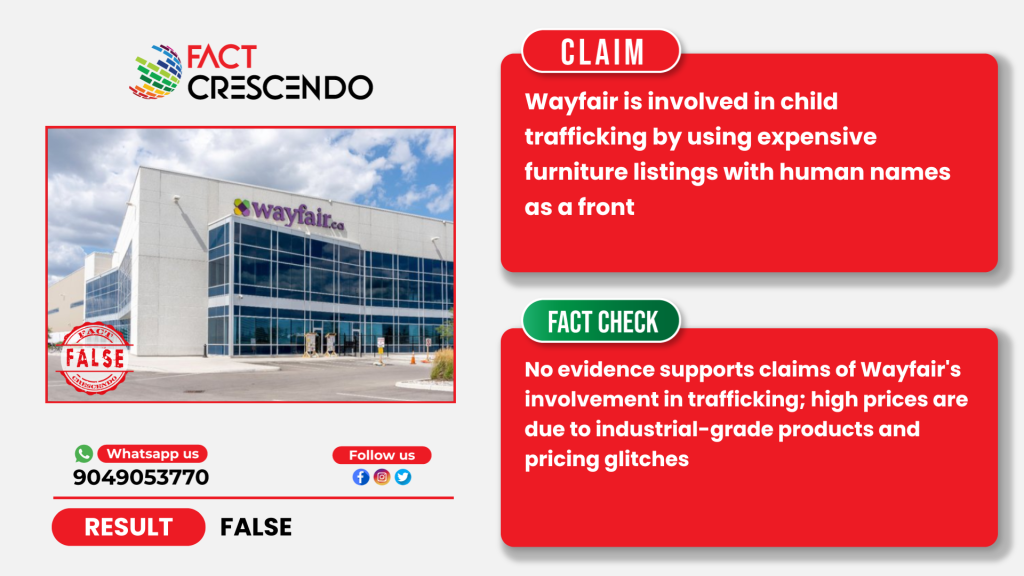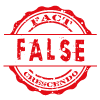
Wayfair, an online furniture retailer, has been accused of involvement in child trafficking through allegedly using high-priced furniture listings as a front. The claim first emerged in July 2020 and spread rapidly across Twitter and Reddit. Social media users cited Wayfair’s expensive storage cabinets—some with human names—as supposed evidence of trafficking. Conspiracy theorists claimed these items were coded listings for selling children. The same allegations have recently resurfaced in the past few weeks.
Social Media Posts
Recently, claims about Wayfair’s involvement in child trafficking have resurfaced on social media.
Fact Check
Upon our investigation, we found that Wayfair’s high-priced furniture items were industrial-grade products marketed for commercial use. The pricing structure aligned with the products’ specifications and customization features. The company’s pricing and product description methods were consistent with standard retail practices.
Further examination of social media activity revealed that the conspiracy theory originated from speculative Reddit and Twitter posts, which rapidly spread without substantiation. These posts often relied on circumstantial interpretations of data and lacked credible evidence. (Source: USA Today)
The names associated with some of these products were algorithmically generated and bore no connection to missing children. Investigations by journalists and authorities cross-referenced the names, such as “Samiyah” and “Annabelle,” with missing children databases. In cases where these names matched actual individuals, the children were found to be safe or unrelated to the listings. For example, Samiyah Mumin was not missing at the time, and Annabelle Wilson’s mention was purely coincidental.
AP News also reported that another individual, Samara Duplessis, whose name appeared in these allegations, was confirmed to be safe. Her family explicitly stated that she was never missing, highlighting how the conspiracy theorists misrepresented public information. This misinformation added unnecessary stress to families and diverted attention from real missing children cases.
Additionally, Polaris, a leading organization in combating human trafficking, issued a statement addressing the Wayfair allegations. Polaris emphasized that these claims were unfounded and detracted from real efforts to combat human trafficking. They highlighted that conspiracy theories like this can misinform the public and redirect valuable resources away from genuine trafficking cases. Polaris urged individuals to rely on verified information and to support credible anti-trafficking initiatives. Read the full statement here.
Wayfair Clarification
Regarding product naming, Wayfair explained that they use an algorithmic system to generate product names, noting that other retailers also commonly use first names for branding products.
The company acknowledged confusion over their high prices, explaining that these particular cabinets were industrial-grade items intended for business use. A company spokesperson informed BBC News that they had temporarily removed the products to rename them and provide clearer descriptions and photos that would better justify the price points.
Addressing claims about expensive personalized pillows costing up to $10,000 being linked to trafficking, Wayfair dismissed these allegations and attributed such instances to website pricing glitches, which they noted were common occurrences among online retailers.
As this claim has recently resurfaced, we have contacted Wayfair for further clarification and will update when we receive their response.
Conclusion
Based on available evidence and investigations, the high prices of Wayfair products appear to be related to their industrial-grade nature and technical pricing issues. Product names were generated algorithmically, and investigations found no substantiated connections between product listings and missing children cases.

Title:Wayfair’s High-Priced Furniture Not Connected to Child Trafficking
Fact Check By: Cielito WangResult: False


